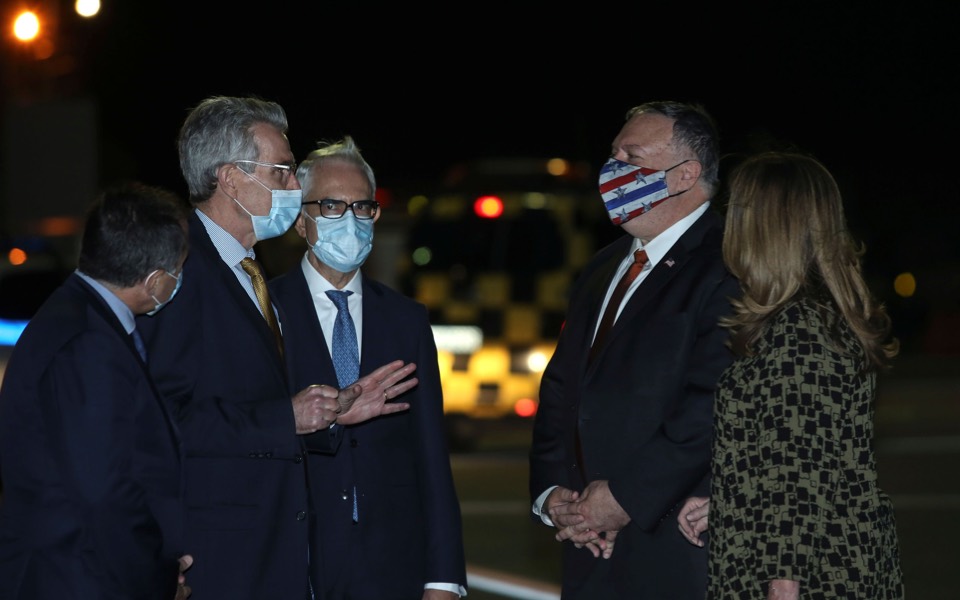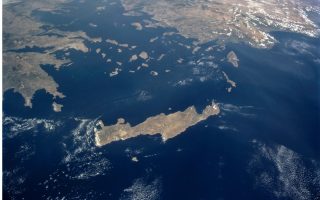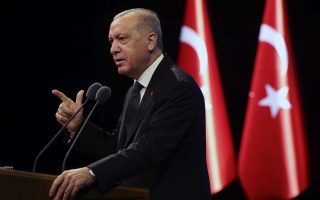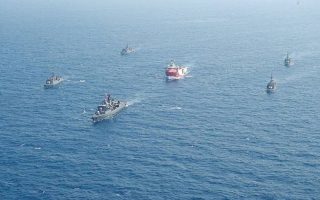The US, the EU and the Eastern Mediterranean

The visit of Secretary of State Mike Pompeo to Greece reconfirms the interest of the US in Eastern Mediterranean affairs. Washington continuously advocates for Greece and Turkey to solve their differences via dialogue. But while a few years ago its mediation was a sine qua non parameter when tensions had to be de-escalated, the European Union did recently score significant foreign policy points. No one would disagree that Germany – both Chancellor Angela Merkel and Foreign Minister Heiko Maas, who was personally involved in shuttle diplomacy – played a catalytic role in giving diplomacy a chance.
This is not the right time for celebrations though. The crisis is far from over and the most delicate part of the task is not just to relaunch exploratory talks between Greece and Turkey but make dialogue a success. The process will be long-term and requires patience and good will. While diplomacy is in progress, quality of information is highly significant. Recently both Ambassadors Geoffrey Pyatt and Ernst Reichel felt the need to tweet in order to refute the content of some media reports that international pressure had been allegedly exerted on the Greek government to accept the demilitarization of some Aegean islands.
The way forward is difficult. On the one hand, the US seeks to heal NATO wounds via so-called “deconfliction talks.” Obviously, this is only part of the problem as French-Turkish tensions represent another, perhaps more serious rift. The recent conversation between Presidents Emmanuel Macron and Recep Tayyip Erdogan was a first attempt of the “two” to manage the existing crisis, which goes far beyond Greek-Turkish relations. More efforts will possibly follow.
And on the other hand, the EU finds itself in a dilemma on how to deal with Turkey. The ongoing discussion about the need for sanctions – with some decisions expected to take place in the special summit on October 1 and 2 – outlines divisions. On the whole, Germany and France employ different tools in approaching Ankara. This will not necessarily constitute bad news for Greece if a balance is achieved.
After the end of the Cold War, the US has patiently waited for Europe to undertake responsibilities in some regional hotspots. Taking the foreign policy priorities of Washington into account – principally its focus on Russia and China – the EU should think strategically and deliver in the Eastern Mediterranean.
There are two critical themes that require a European practical response in the medium term. The first is whether Brussels would be prepared to link Greek-Turkish talks on the delimitation of maritime zones to outstanding themes of the EU-Turkey partnership, especially those Ankara makes some demands upon. And the second is if it could envisage playing the role of guarantor for some hydrocarbon exploration revenues in Cyprus’ exclusive economic zone to be shared with the Turkish-Cypriot community on the island. In the optimum scenario, the creation and functioning of a revenue-sharing mechanism under the EU umbrella, will be linked to the solution of the Cyprus question.
Dr George N. Tzogopoulos, senior fellow at the Hellenic Foundation for European and Foreign Policy (ELIAMEP), the Begin-Sadat Center for Strategic Studies and Centre International de Formation Européenne (CIFE), teaches international relations at the Democritus University of Thrace.





